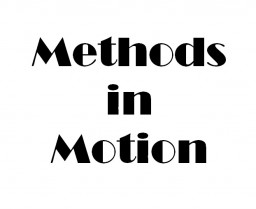
My research participants and I definitely had one thing in common: we managed to turn our disadvantage into an advantage. My imperfect German and newcomer status in Austria became an effective interview icebreaker. Their experience of migration and marginalisation became a skill valued by clients and coveted by employers in the migration third sector – a significant advantage against the backdrop of a discriminatory labour market which commonly failed to recognise their official qualifications and previous work experience.
My EU-funded research project Employing the Cultural Broker in the Governance of Migration and Integration, was exploring the dynamics of (dis)identification of front-line staff of migrant support and advocacy organisations with their clients and with migration politics. I was interested in moments of staff’s alignment and solidarity with clients, as well as moments of differentiating, distancing, and even disciplining. More broadly, I was investigating how the position of ‘cultural broker’ plays out in a context in which the migration third sector becomes increasingly implicated in normative migration and integration regimes.
I dreaded the first interviews that I conducted in German, shortly after arriving from the Netherlands as a researcher in Austria. Each interview started with apologies about my language mistakes. Going through the already painful process of transcribing on a German keyboard, I always skipped ahead on the recording so that I didn’t have to listen to my own clumsy introduction.
To my surprise, my hesitant opening lines often elicited immediate openness from interviewees (the refugee and migrant staff of migrant support and advocacy organisations). They formed an effective prelude to addressing a research puzzle about the positionality of refugees and migrants who work as front-line staff for migrant charities. To interpret these interview encounters, I had to abandon the rigid framework of ‘insider versus outsider’ in research. To understand my interviewees, I had to understand how their positionality straddled minority/majority divides.
Traditionally, migration research divides researchers into outsider researchers (those from the dominant ethnic majority) and insider researchers (those who shared the ethnic background of their research participants). It attributes objectivity and distance to the outsiders, rapport and close understanding to the insiders. In recent years, calls to move beyond this binary and to question assumptions about access to knowledge, have become louder. Not only are more complex subject positions recognised, but more fundamentally, migration studies increasingly wrestles with its own reification of the categories ‘migrant’ and ‘ethnic background’.
In a 2014 article, Jørgen Carling, Marta Bivand Erdal and Rojan Ezzati present the figure of the ‘insider by proxy’: the researcher with migration experience, but from a different migrant group than the one being studied. I intimately recognise their observation that interviewees are more eager to share their critical perspective on the host society with the ‘insider by proxy’ researcher. One refugee caseworker told me how she experienced the coldness of her non-migrant Austrian colleagues: 'the Austrians are like glass' and continued: 'that is also what the [refugee and asylum seeking] clients say: "we don’t want to go to them".'
However, the fact that migrant and refugee case workers confided in me, for example, that Austrian colleagues were always prepared to take food brought by their migrant colleagues, but not prepared to share, did not make me an insider researcher. Rather, as Nancy Naples argues, my own outsiderness formed a resource for obtaining an insider perspective.
While in the interview context we could create a momentary community of outsiders, this could easily be disrupted when interviewees contrasted their own migration history or that of their clients with my Dutch EU citizen privilege.
For instance, a refugee case worker who appealed to my own experience of moving abroad to explain that arriving in a new place 'one is really like a child', added that the experience of migration is fundamentally different for refugees like herself and her clients, who 'from one day to another have to disappear with a suitcase, and just arrive somewhere where they did not even want to go'.
When refugee and migrant staff explained with the patience of an experienced caseworker how I, the newly arrived researcher, should navigate Austrian society, they positioned themselves as insiders in Austria. The next moment, they identified as outsiders when they slipped from describing the experiences of their clients to their own story of forced migration.
So what did this mean for me as a researcher seeking to understand positionality in the context of the migration third sector? Well, it became evident that in order to ‘know’, it was essential that I attended to the ways in which research participants performed their positionality and relationality in the interview setting – not least in relation to my own ascribed and performed positionality.
Methods in Motion is a series of blogs by CCIG members, appearing every Friday.
Dr Sara de Jong is Co-lead of the Justice, Borders, Rights research stream and Research Fellow of the Strategic Research Area Citizenship & Governance at The Open University. Her research interests are the politics of NGOs, in particular in the fields of migration, gender and development.






Rate and Review
Rate this article
Review this article
Log into OpenLearn to leave reviews and join in the conversation.
Article reviews